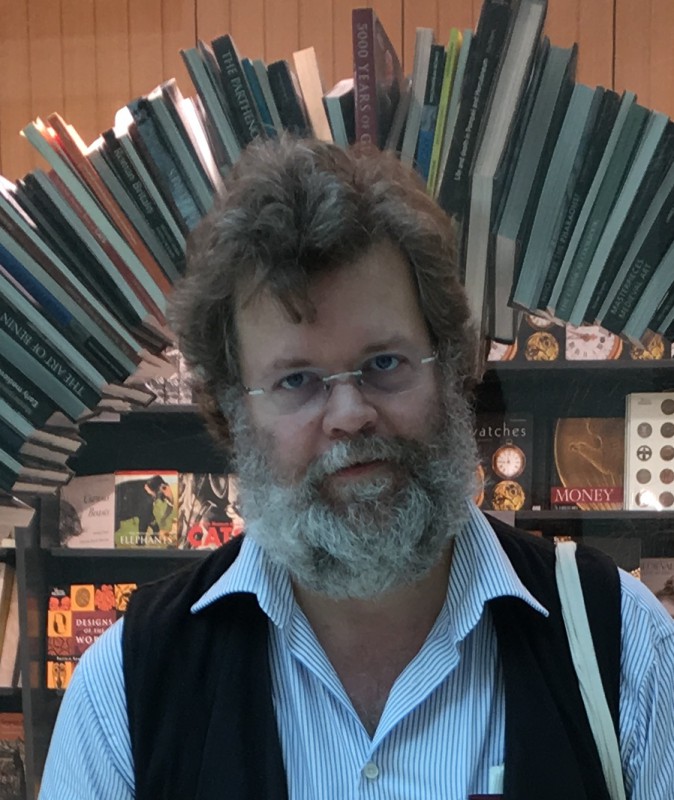KLI Colloquia are invited research talks of about an hour followed by 30 min discussion. The talks are held in English, open to the public, and offered in hybrid format.
Join via Zoom:
https://us02web.zoom.us/j/5881861923?omn=85945744831
Meeting ID: 588 186 1923
Spring-Summer 2026 KLI Colloquium Series
12 March 2026 (Thurs) 3-4:30 PM CET
What Is Biological Modality, and What Has It Got to Do With Psychology?
Carrie Figdor (University of Iowa)
26 March 2026 (Thurs) 3-4:30 PM CET
The Science of an Evolutionary Transition in Humans
Tim Waring (University of Maine)
9 April 2026 (Thurs) 3-4:30 PM CET
Hierarchies and Power in Primatology and Their Populist Appropriation
Rebekka Hufendiek (Ulm University)
16 April 2026 (Thurs) 3-4:30 PM CET
A Metaphysics for Dialectical Biology
Denis Walsh (University of Toronto)
30 April 2026 (Thurs) 3-4:30 PM CET
What's in a Trait? Reconceptualizing Neurodevelopmental Timing by Seizing Insights From Philosophy
Isabella Sarto-Jackson (KLI)
7 May 2026 (Thurs) 3-4:30 PM CET
The Evolutionary Trajectory of Human Hippocampal-Cortical Interactions
Daniel Reznik (Max Planck Society)
21 May 2026 (Thurs) 3-4:30 PM CET
Why Directionality Emerged in Multicellular Differentiation
Somya Mani (KLI)
28 May 2026 (Thurs) 3-4:30 PM CET
The Interplay of Tissue Mechanics and Gene Regulatory Networks in the Evolution of Morphogenesis
James DiFrisco (Francis Crick Institute)
11 June 2026 (Thurs) 3-4:30 PM CET
Brave Genomes: Genome Plasticity in the Face of Environmental Challenge
Silvia Bulgheresi (University of Vienna)
25 June 2026 (Thurs) 3-4:30 PM CET
Anne LeMaitre (KLI)
KLI Colloquia 2014 – 2026
Event Details

Topic description / abstract:
Innovation is a universal characteristic of evolving complex systems. This includes organisms as well as technologies, economics as well as social systems. But not all innovations are equal. Most are variations of existing characters or technologies, some involve novel recombination of existing parts, and very few are truly “major transitions.” Evolutionary biologists have long recognized the existence of such major transitions. Recently a better understanding of such major transitions emerged, one that highlights the close connections between all evolving systems (biological, technological, economic). One defining feature of all major transitions is that these involve the emergence of novel platforms (generally defined) that facilitate further differentiation and diversification within these systems. One consequence of major transitions is that they open up new domains (of life or technology) and therefore also of new evolutionary dynamics and opportunities. Capturing these dynamics also involves a novel approach to understanding evolution (extended evolution theory), which is far better suited to capture technological, economic and social systems than the simple application of models of selection that has characterized much of evolutionary economics.
Biographical note:
Manfred Laubichler is President's Professor of Theoretical Biology and History of Biology and Director of the Global Biosocial Complexity Initiative at Arizona State University. His work focuses on evolutionary novelties from genomes to knowledge systems, the structure of evolutionary theory and the evolution of knowledge. His undergraduate training was in zoology, philosophy and mathematics at the University of Vienna (Austria) and his graduate training was in biology at Yale and in History/History of Science at Princeton. He is an external professor at the Santa Fe Institute and co-director of the ASU-SFI Center for Biosocial Complex Systems, an adjunct scientist with the Marine Biological Laboratory at Woods Hole, MA, a visiting scholar at the Max Planck Institute for the History of Science in Berlin, Germany, external faculty member at the Complexity Science Hub Vienna, and Guest Professor at Leuphana University in Lüneburg, Germany. He has been affiliated with the KLI for many years, most recently as a member of the scientific advisory board. He is also an elected fellow of the American Association for the Advancement of Science, a former fellow of the Wissenschaftskolleg zu Berlin and Vice Chair of the Global Climate Forum.


